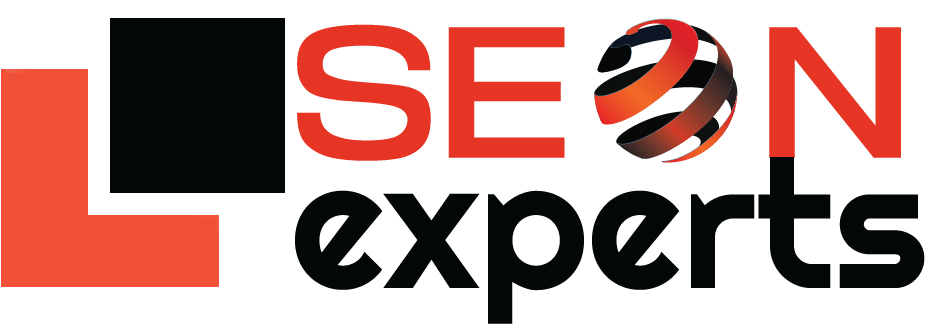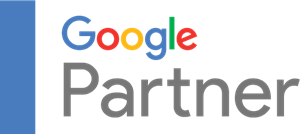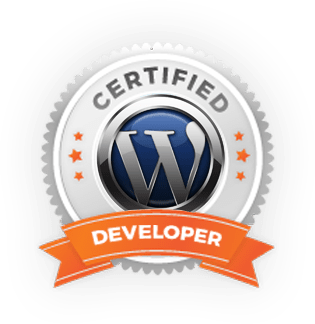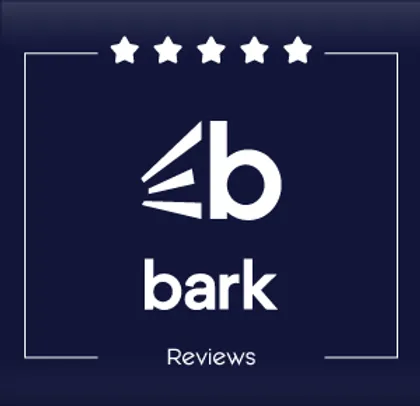In the ever-evolving landscape of digital marketing, mastering expert SEO techniques is paramount to achieving and maintaining high search engine rankings. Search Engine Optimization (SEO) encompasses a wide array of strategies and practices designed to enhance the visibility of your website on search engine results pages (SERPs). These techniques are essential for driving organic traffic, engaging potential customers, and ultimately boosting your ROI.
Effective SEO is not just about incorporating keywords but involves a holistic approach that includes on-page, off-page, and technical SEO. By understanding and implementing these strategies, businesses can significantly improve their online presence.
On-page SEO focuses on optimizing individual web pages to rank higher and earn more relevant traffic. This includes the use of keywords, meta tags, content quality, and internal linking. Off-page SEO, on the other hand, involves activities outside of your website, such as backlinks and social signals, which help build your site’s authority and reputation. Lastly, technical SEO ensures that your website meets the technical requirements of search engines, like site speed, mobile-friendliness, and secure connections.
To put these expert SEO techniques into practice and watch your site’s rankings soar, call us today at (817) 213-6090 and let SEON Experts guide you through a tailored strategy designed for success.
Importance of Keyword Research

In the realm of expert SEO techniques, keyword research stands as a foundational cornerstone. It’s the process of identifying and analyzing the search terms that users enter into search engines, which serves as the basis for all other SEO activities. Effective keyword research allows businesses to understand their audience better, predict shifts in demand, and respond to changing market conditions.
The importance of keyword research cannot be overstated. First, it helps you to find the right keywords that have a high search volume but low competition, ensuring that your content reaches a larger audience without getting lost in the sea of similar content. Second, it enables you to optimize your content to meet the intent behind user searches, thereby increasing the chances of higher engagement and conversions.
Moreover, keywords are crucial for on-page SEO. They should be strategically placed in titles, headings, meta descriptions, and throughout the content to signal to search engines what the page is about. This helps in improving the page’s relevance and ranking. Tools like Google Keyword Planner, SEMrush, and Ahrefs can provide valuable insights into keyword performance and trends.
By investing time in thorough keyword research, you can create a robust SEO strategy that not only attracts more traffic but also brings in the right kind of visitors—those who are more likely to convert into customers. Skipping this step can lead to missed opportunities and ineffective SEO campaigns, making it a critical aspect of any successful digital marketing strategy.
On-Page SEO Best Practices

On-page SEO refers to the optimization techniques that are applied directly on your website to improve its search engine rankings and attract organic traffic. Understanding and implementing on-page SEO best practices is essential for any comprehensive expert SEO technique strategy.
First and foremost, optimizing your title tags and meta descriptions is critical. These elements should include your primary keywords and provide a compelling reason for users to click through to your site. Additionally, they should be unique for each page to avoid keyword cannibalization and ensure that each page targets a specific search intent.
Content quality is another vital aspect of on-page SEO. Your content should be informative, engaging, and provide real value to the reader. Utilizing headers and subheaders (H1, H2, H3 tags) not only makes your content more readable but also helps search engines understand its structure and relevance. Including your target keywords in these headers can further enhance your SEO efforts.
Internal linking plays a significant role in on-page SEO as well. By linking to other relevant pages within your website, you can help distribute page authority and keep users engaged longer, which can positively impact your rankings. Additionally, make sure your URLs are clean and include relevant keywords, as this can improve the user experience and provide another opportunity for keyword optimization.
Lastly, don’t overlook the importance of optimizing your images. Use descriptive file names, alt texts, and captions that include your target keywords. This not only improves accessibility but also provides another avenue for search engines to understand the content of your page.
Implementing these on-page SEO best practices can significantly enhance your website’s visibility, making it easier for search engines to crawl and index your pages, and ultimately driving more organic traffic to your site.
Effective Off-Page SEO Strategies

Off-page SEO refers to the actions taken outside of your own website to impact your rankings within search engine results pages (SERPs). While on-page SEO focuses on optimizing elements within your control, off-page SEO is about enhancing your site’s credibility and authority through external means. Implementing effective off-page SEO strategies is crucial for a well-rounded expert SEO technique.
One of the most powerful off-page SEO strategies is building high-quality backlinks. Backlinks, or inbound links, act as votes of confidence from other websites. When reputable sites link to your content, search engines view your site as more trustworthy and authoritative. It’s important to focus on acquiring backlinks from relevant and high-authority domains within your industry.
Guest blogging is another valuable off-page SEO technique. By contributing high-quality content to other well-respected blogs, you not only gain backlinks but also increase your exposure to a broader audience. This can lead to more referral traffic and further establish your authority in your niche.
Social media engagement also plays a significant role in off-page SEO. By actively sharing your content on social media platforms and engaging with your audience, you can drive more traffic to your site and increase the likelihood of your content being shared. This social proof can indirectly benefit your SEO by boosting your site’s visibility and credibility.
Influencer outreach is another effective strategy. Collaborating with influencers in your industry can amplify your content’s reach and generate more backlinks. Influencers have established audiences who trust their recommendations, making this an excellent way to attract high-quality traffic to your site.
Lastly, don’t forget about local SEO and online reviews. For businesses with a physical presence, optimizing for local searches and encouraging satisfied customers to leave positive reviews can significantly improve your online reputation and local search rankings.
By integrating these off-page SEO strategies into your overall SEO plan, you can enhance your website’s authority, drive more organic traffic, and ultimately achieve higher search engine rankings.
Technical SEO for Improved Rankings

Technical SEO involves optimizing your website’s infrastructure to help search engines crawl and index your site more effectively. While it may seem daunting, implementing technical SEO is crucial for improving your site’s visibility and ensuring a seamless user experience. This section will delve into the key aspects of technical SEO that can drive improved rankings.
Site Speed is a critical factor in technical SEO. A fast-loading website not only enhances user experience but also positively impacts your search engine rankings. Tools like Google PageSpeed Insights can help you identify and fix issues slowing down your site, such as large image files, excessive scripts, and server response times.
Another essential element of technical SEO is mobile-friendliness. With the increasing number of users accessing the web via mobile devices, search engines prioritize mobile-friendly websites. Ensure your site is responsive and provides an optimal viewing experience across all devices through tools like Google’s Mobile-Friendly Test.
XML sitemaps serve as a roadmap for search engines, guiding them through the different pages of your site. An updated and well-structured XML sitemap helps search engines find and index your content more efficiently. Most Content Management Systems (CMS) offer plugins or built-in features to generate and submit XML sitemaps.
Structured data, also known as schema markup, is another vital component of technical SEO. Adding structured data to your site’s HTML helps search engines understand your content better, leading to enhanced search results like rich snippets. Use Google’s Structured Data Markup Helper to create and test your schema markup.
Additionally, resolving crawl errors is a fundamental task in technical SEO. Regularly check Google Search Console for crawl errors and fix issues such as broken links, 404 errors, and server issues. Ensuring a clean crawl report can significantly improve your site’s indexability.
Lastly, consider implementing HTTPS for your site. HTTPS encrypts the data exchanged between your site and its visitors, providing a secure browsing experience. Search engines favor secure sites, and having HTTPS can give you a slight ranking boost.
By focusing on these technical SEO aspects, you can create a solid foundation for your website, making it easier for search engines to crawl, index, and rank your content effectively.
Monitoring and Analyzing SEO Performance
Once you’ve implemented various expert SEO techniques, it’s essential to monitor and analyze your SEO performance to ensure your strategies are effective. Continuous monitoring allows you to identify areas for improvement and adapt to ever-changing search engine algorithms.
Google Analytics is a powerful tool for tracking your website’s performance. It provides insights into your site’s traffic, user behavior, and conversion rates. By analyzing metrics such as bounce rate, session duration, and page views, you can gauge how well your SEO efforts are engaging users and driving them to take action.
Another indispensable tool is Google Search Console. It helps you understand how Google views your site and provides valuable data on search traffic, indexing issues, and keyword performance. Regularly checking your Search Console can alert you to potential problems like crawl errors or security issues, enabling you to address them promptly.
Keyword tracking tools such as SEMrush or Ahrefs allow you to monitor your keyword rankings over time. By keeping an eye on your target keywords, you can measure the effectiveness of your SEO strategies and make necessary adjustments to stay ahead of the competition.
Additionally, conducting SEO audits periodically can help you identify technical issues, on-page optimization opportunities, and backlink quality. Tools like Screaming Frog or Moz’s Site Crawl can automate this process, providing comprehensive reports that highlight critical areas for improvement.
It’s also crucial to monitor your backlink profile. Tools like Ahrefs or Majestic can help you track your backlinks, analyze their quality, and identify any potentially harmful links. Maintaining a healthy backlink profile is essential for sustaining your site’s authority and rankings.
Finally, staying updated with the latest SEO trends and algorithm changes is vital. Subscribe to industry blogs, participate in webinars, and engage with SEO communities to ensure you’re always in the loop.
By consistently monitoring and analyzing your SEO performance, you can fine-tune your strategies and achieve continuous growth in your site’s rankings. Ready to take your SEO to the next level? Call us today at (817) 213-6090 and let SEON Experts help you maximize your online potential.






